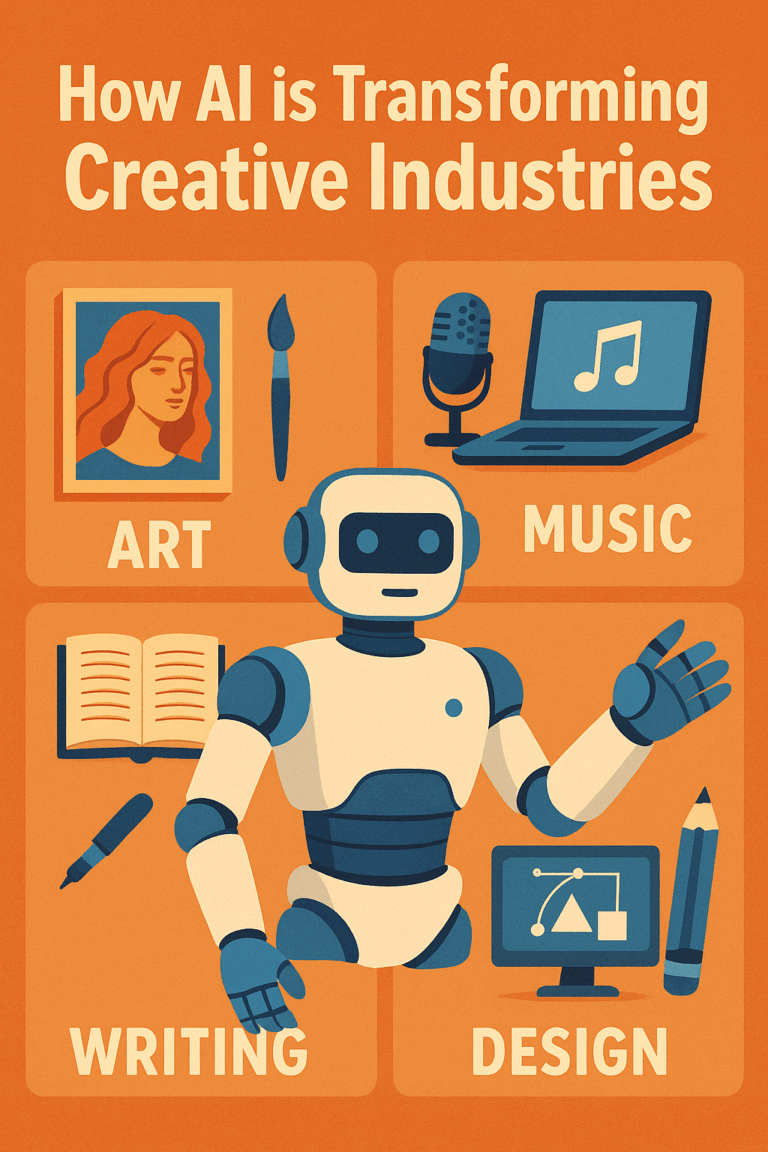How AI is Transforming Creative Industries

Artificial Intelligence (AI) is no longer just a tool for automation. It’s becoming a partner in creativity. From art and design to music, film, and marketing, AI is changing how ideas are generated, developed, and delivered. The creative industries, which once relied solely on human imagination, are now undergoing a significant transformation where technology and creativity work together.
AI as a Creative Partner
AI tools like ChatGPT, MidJourney, DALL·E, and Adobe Firefly help creators generate ideas faster than ever. Writers can use AI to brainstorm storylines or improve content flow. Designers can quickly visualize concepts through AI-generated images. This doesn’t replace human creativity but improves it by reducing repetitive tasks and sparking inspiration.
Personalization at Scale
In marketing, music, and entertainment, personalization has become essential. AI algorithms analyze user preferences and create tailored experiences, from Spotify playlists to Netflix recommendations. For brands, this means campaigns that connect deeply with audiences because they feel individually crafted, even when delivered to millions.
Breaking Barriers in Design and Art
AI has made design more accessible. With simple AI-powered tools, even those without formal training can create logos, animations, or visual art. This accessibility is encouraging more participation in creative fields. Professional designers can also use AI to speed up their work, test variations, and focus on high-level strategy instead of repetitive design tasks.
Music and Film Innovation
In the music industry, AI can compose melodies, remix songs, and mimic instruments. Filmmakers are using AI for script analysis, editing, and special effects, which allows for quicker production cycles and more innovative storytelling. These advancements broaden creative possibilities while cutting down on time and costs.
Challenges and Ethical Considerations
While AI brings efficiency, it also raises questions about originality, copyright, and job displacement. Who owns AI-generated content—the creator, the tool, or the company behind it? Balancing innovation with ethics will be important as AI continues to grow in the creative space.
Conclusion
AI is changing creative industries by acting as both a collaborator and an accelerator of ideas. Instead of replacing human imagination, it improves it—allowing artists, marketers, and creators to focus on vision and strategy. The future of creativity will involve humans and AI working together to explore the limits of what’s possible.